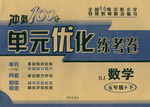题目内容
2.For medical students,real experience begins not in a classroom but at a teaching hospital.These doctors in training are guided.But sometimes accidents happen and the students get injured.For example,they might stick themselves with a needle while treating patients.Such needle sticks are common.But a recent study found that medical students often fail to report them.Failing to report an injury like this can be dangerous if a patient,or a medical worker,has an infectious disease.
Researchers at Johns Hopkins University in Baltimore,Maryland,did the study,which involved a survey answered by almost 700 surgeons in training in the United States.
Almost 60% said they had suffered needle stick injuries when they were in medical school.Many said they were stuck more than once.Yet nearly half of those whose most recent incident happened in school did not report it to a health office.If they had,they would have been tested to see if they needed treatment to prevent an infection like HIV or hepatitis.
Most known cases of HIV or hepatitis are reported,but other possible infections often are not.Martin Makary,the lead author of the study,says medical students who are stuck put themselves and others in danger from infectious diseases.
Doctor Makary said,"A needle that goes through the skin needs to be as sharp as possible."Doctors in training may have to do hundreds of stitches (缝线) in some cases to close the skin after an operation.
Doctor Makary said,"I support using blunt tip needles which are considered safer.This needle is still sharp enough to go through body tissue,but it does have a blunt tip,so that if it accidentally goes into my finger,it's much less likely to hurt me."
How common are needle sticks among health care workers?An estimated 600,000 to 800,000 of these and similar injuries are reported each year in the United States.But Doctor Makary says the real number may be much higher.
The study advises doctors to protect their hands by wearing two sets of gloves.It also urges hospitals to establish a special telephone number for medical workers and students to call if they are injured.The idea is for hospitals to send a clear message that there is no reason not to report this kind of accident.
41.It is dangerous for medical students not to report needle stick injuries becauseC.
A.they don't know how to treat themselves.
B.they may meet more needle sticks
C.it may cause some diseases
D.it may make patients sad.
42.If they report needle stick injuries,medical students willD.
A.receive treatment
B.be forbidden to use sharp needles
C.spend more time on training
D.receive tests
43.The underlined word"blunt"in Paragraph 7 is the closest in meaning to"A".
A.not sharp B.not safe C.not long D.not thick
44.What do we know from the passage?D
A.Doctors who don't report needle stick injuries will be punished.
B.Needle sticks among health care workers will reduce sharply in the future.
C.Most needle stick injuries happen in the United States.
D.Two suggestions are given to protect medical workers and students.
45.Where can this passage most probably be found?B
A.In an entertainment magazine
B.In a science magazine
C.In a storybook
D.In science fiction.
分析 本文介绍了外科医生手术中常常被缝线针扎伤手指,却很少有人报告,因而埋下隐患的现状,以及相应的对策:戴两层手套、设立电话专线.
解答 CDADB
41.C 细节题.由文章第二段Failing to report an injury like this can be dangerous if a patient,or a medical worker,has an infectious disease.一句可知,受伤后不报告危险是因为病人或医务人员可能患有传染性疾病.故C项正确.
42.D 细节题.由第四段If they had (reported),they would have been tested to see …可知,如果报告就会接受体检(test).故D项正确.
43.A 由于针扎事件频发,故有医生建议使用"带有blunt tip的但是仍然能够穿透人体组织的"缝针.这样就不会轻易扎伤手指.据此可以推断这种缝针不像通常使用的那么尖锐.故A项正确.
44.D 细节题.从文章最后一段The study advises doctors to protect their hands by wearing two sets of gloves.可知.研究报告建议医生wearing two sets of gloves,医院设立a special telephone number.故D项正确.
45.B 细节题.本文介绍了外科医生手术中常常被缝线针扎伤手指,却很少有人报告,因而埋下隐患的现状,以及相应的对策:戴两层手套、设立电话专线.属于科学范畴,故选B.
点评 做阅读理解时要快速的浏览全文,把握文章主旨大意,带着问题回到原文,寻找细节或概括相应的答案,最后要理清作者写作思路.

 云南师大附小一线名师提优作业系列答案
云南师大附小一线名师提优作业系列答案 冲刺100分单元优化练考卷系列答案
冲刺100分单元优化练考卷系列答案| A. | don't make | B. | not make | C. | not making | D. | not to make |
| A. | not to play | B. | to not play | C. | not playing | D. | not played |
| A. | Fortunately | B. | Luckily | C. | Sadly | D. | Thankfully |